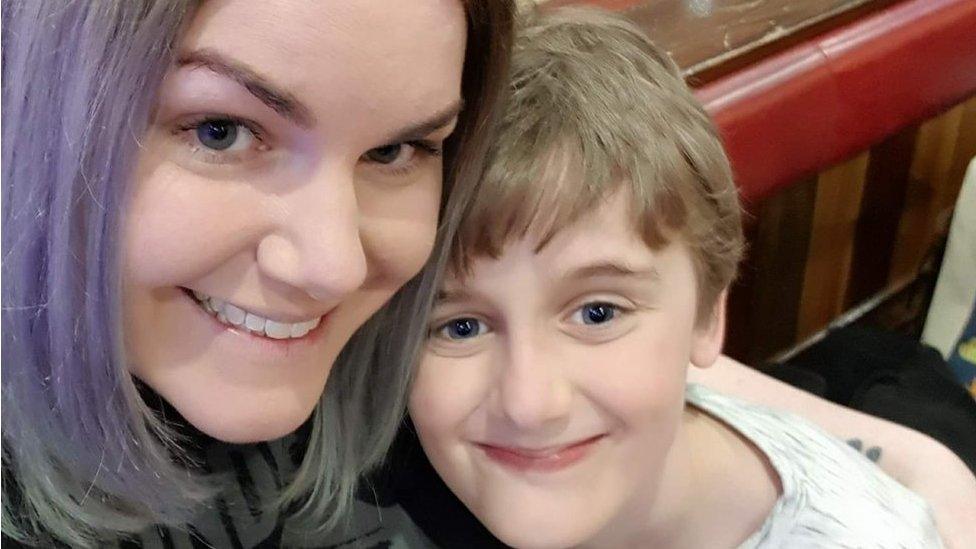Family's autistic daughter was 'deemed too dangerous'
- Published
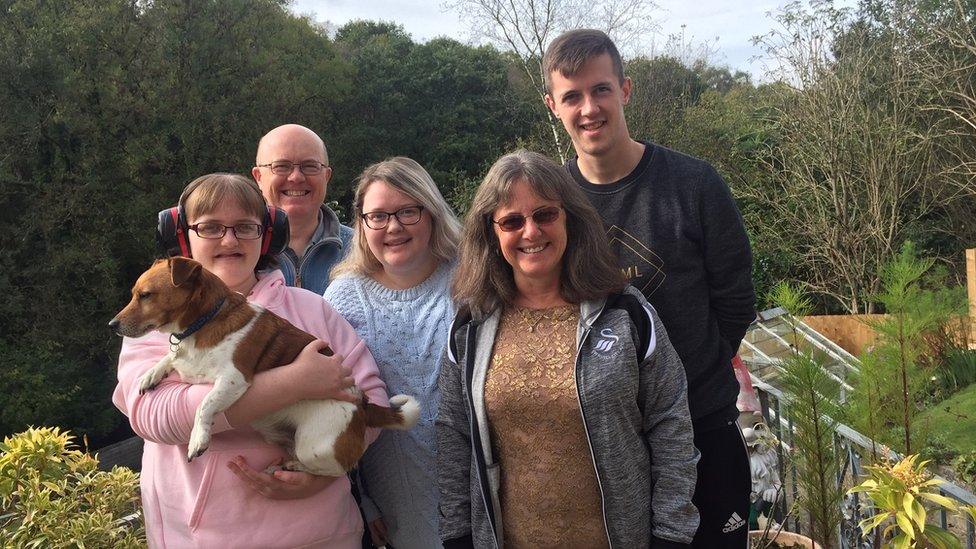
With family: Claire's mother, Cath, believe she has been given a string of unsuitable care placements which affected her behaviour
Claire Dyer was sectioned in 2014, deemed too dangerous to be at home and sent to a secure hospital in Brighton.
But the 24-year-old is now back with her parents in Swansea because no other suitable accommodation is available.
She is among 34,000 people with autism in Wales and many have "fallen through gaps" in care provision, leaving families struggling to cope.
The Welsh Government is trying to address this and is rolling out a Wales-wide integrated service.
But parents have also called for more input in devising appropriate care plans.
"It's laughable," said Claire's mother, Cath Dyer. "In 2014, she was not allowed to live here, she was deemed too dangerous.
"But now she's here full-time."
A battle ensued four years ago when, because of Claire's "challenging behaviour", carers wanted to move her from Swansea to the nearest suitable unit.
Local health board officials said she displayed aggressive behaviour, threatened to kill members of staff and tried to use a drain pipe as a weapon.
Her family disputed this but she was sent 230 miles away in August 2014.
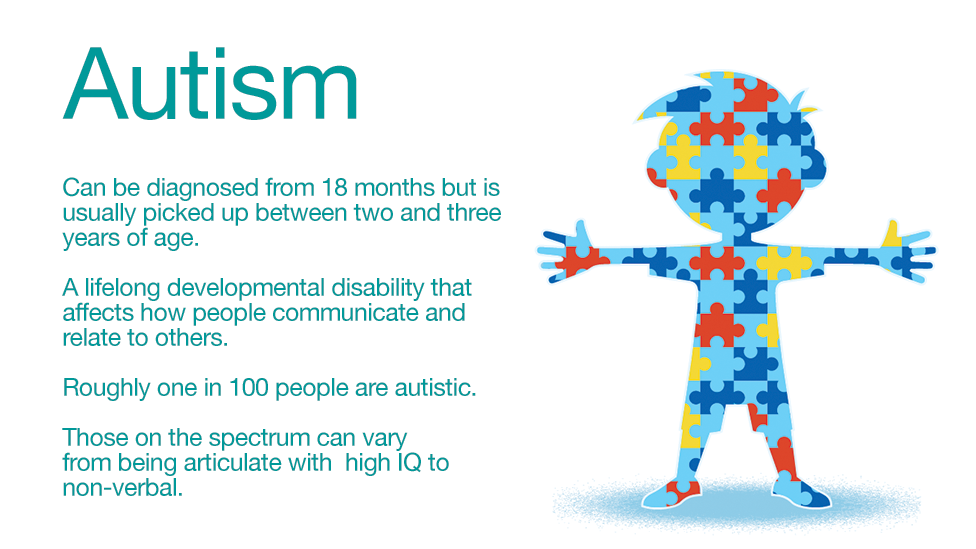
Following a campaign, Claire was allowed home three months later with care workers supporting her parents by taking her out daily.
But the provision stopped in April this year after "an incident" when she smashed something and she is now at home full-time.
"We don't get a break at the moment but we are more concerned with making sure things go right," Mrs Dyer said.
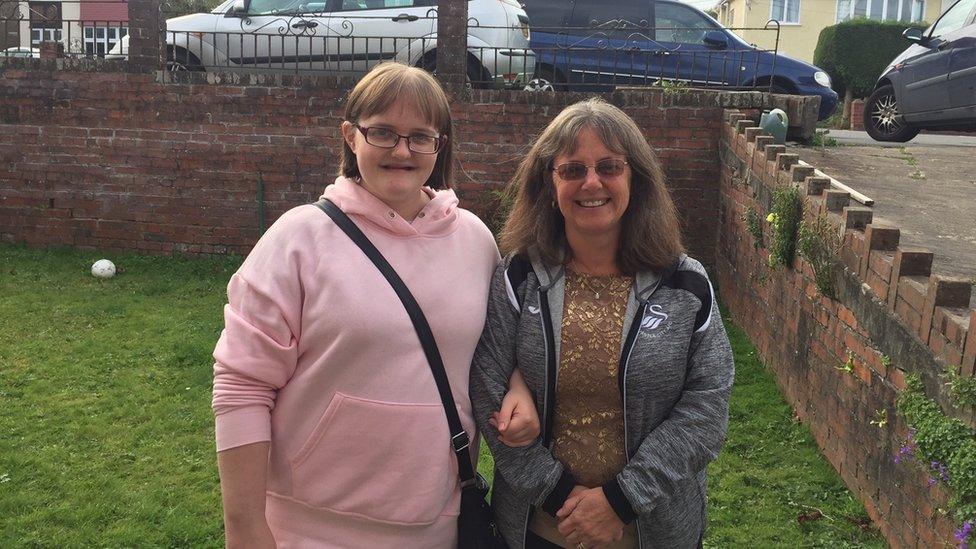
Claire's behaviour has settled since she has been at home and her mother believes parents should be given greater input in devising care plans
"She was locked away in the cells, crying down the place in Brighton. Claire is in a far better place now.
"She sometimes gets upset and says the goal is to have her in good supported accommodation and happy and safe before we are too old to fight for her."
A full-time home has been found, but her mother said: "Speed moving her there doesn't matter after all Claire's been through."
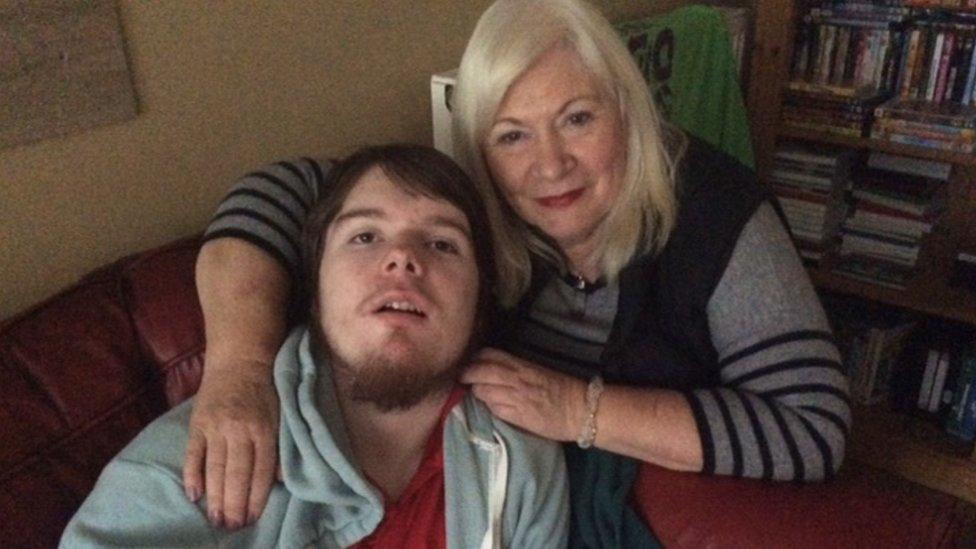
Jill Grange has had to use Google to find out much of what she knows about her son's condition
There are about 34,000 people with autism in Wales - with parents and carers, it affects 136,000.
Meleri Thomas, from National Autistic Society Cymru, said: "It can be challenging for autistic people to receive support.
"Local services are traditionally set up with learning disability and mental health teams. Autism isn't either of these, it's a condition in its own right.
"But quite often because autistic people don't fit into either teams they fall through the gaps."
Jill Grange believes little more is known about it than when son Matthew, 20, was born.
After a string of unsuccessful placements, she decided the best place for him was with her in Bridgend.
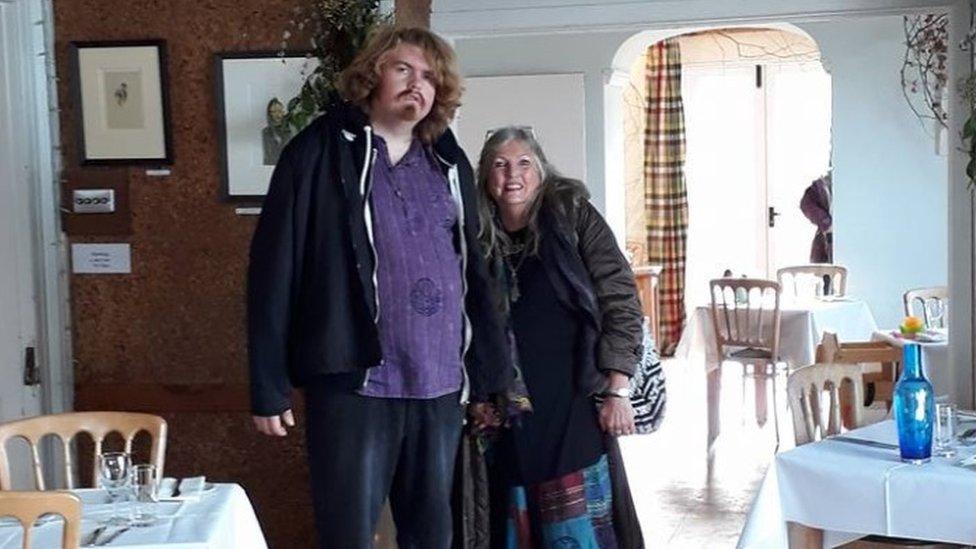
Geraint Shattock lives with his mother and does activities such as swimming and gardening each day
Ann Fowler built a carer's annexe on to her Bedwas home so son Geraint, 25, can stay there when she is too old to look after him.
But she acknowledged not all parents could secure their children's futures like this.
An integrated autism service for Wales, external is being rolled out and is looking how best to help families.
While people with disabilities or mental health issues receive a key worker and care manager, it aims to "fill the gap" and provide similar for those with autism.
A panel is updating housing guidance with the aim of providing "homes for life".
Project lead Wendy Thomas said: "As it is a new service the long term impact is difficult to measure (as yet) but we do have a whole library of case studies of where the services have already made a significant difference."
- Published12 August 2018
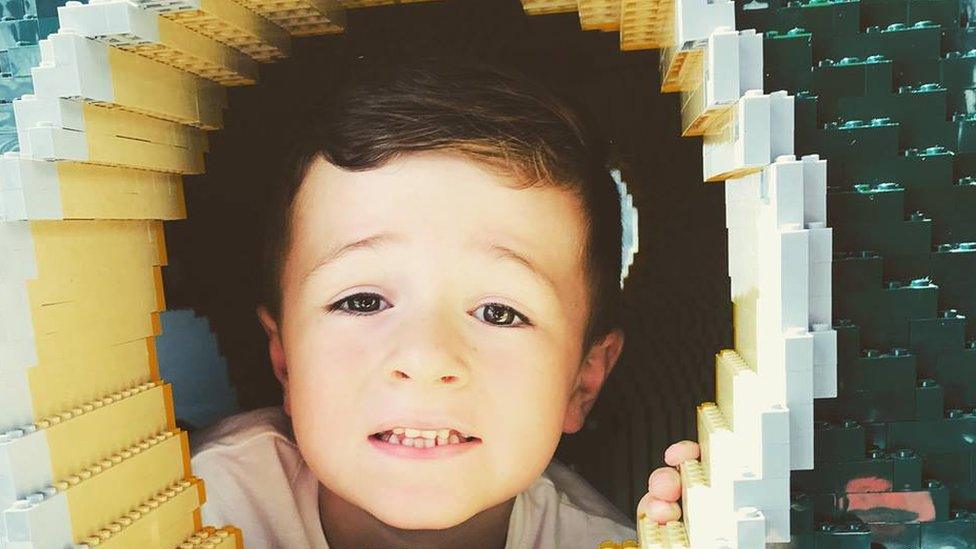
- Published27 September 2018
